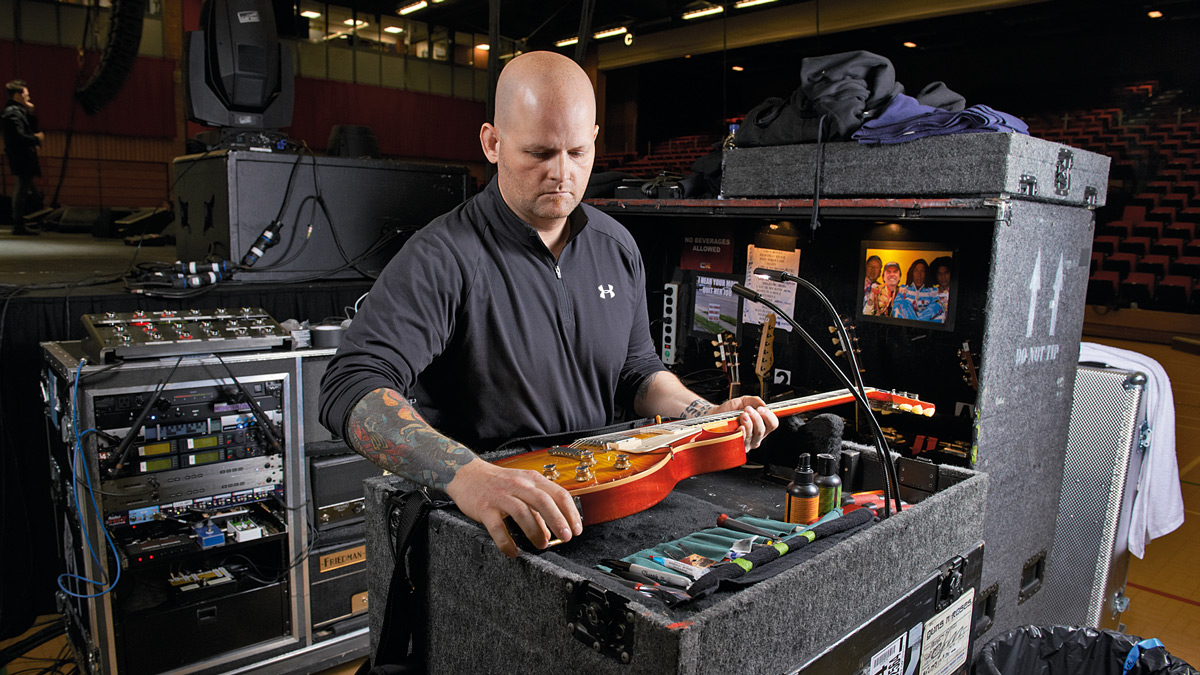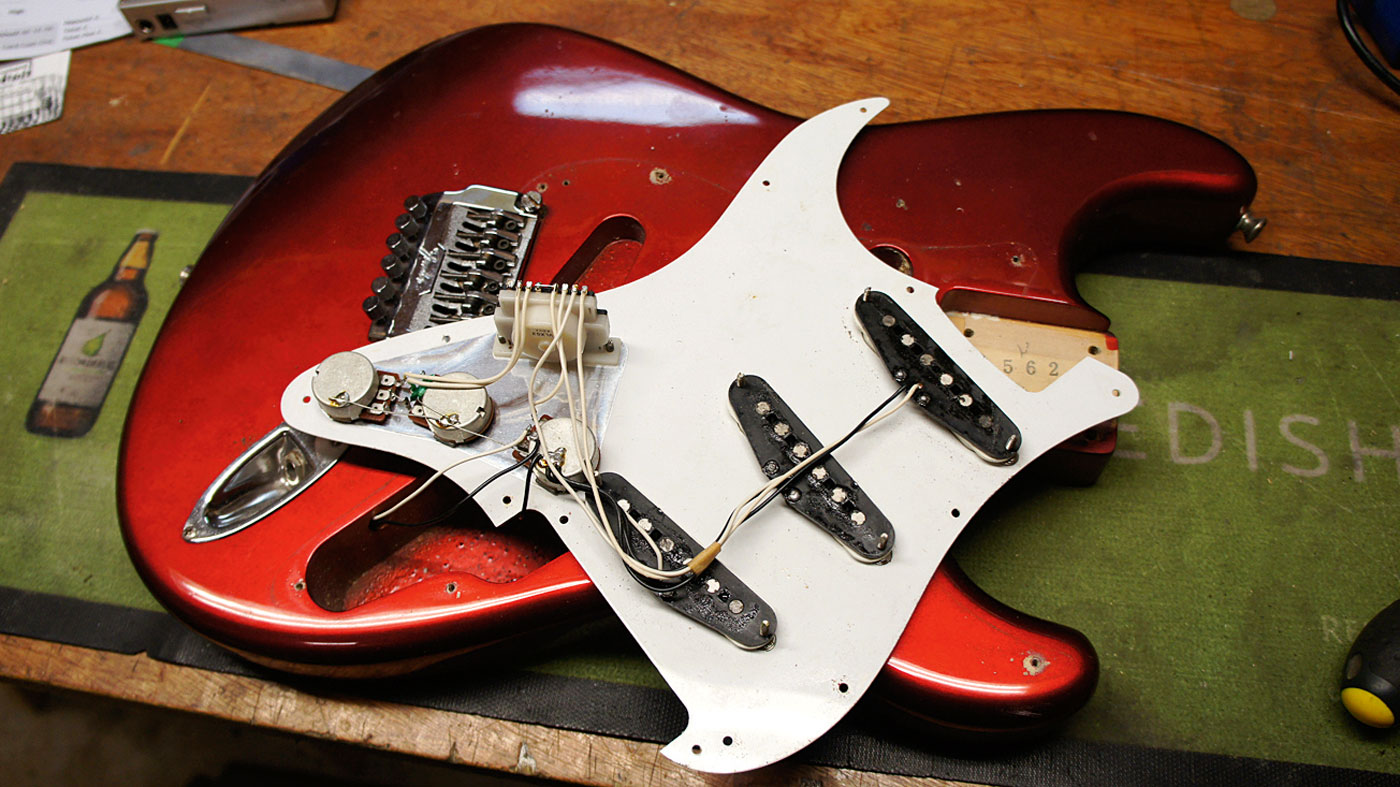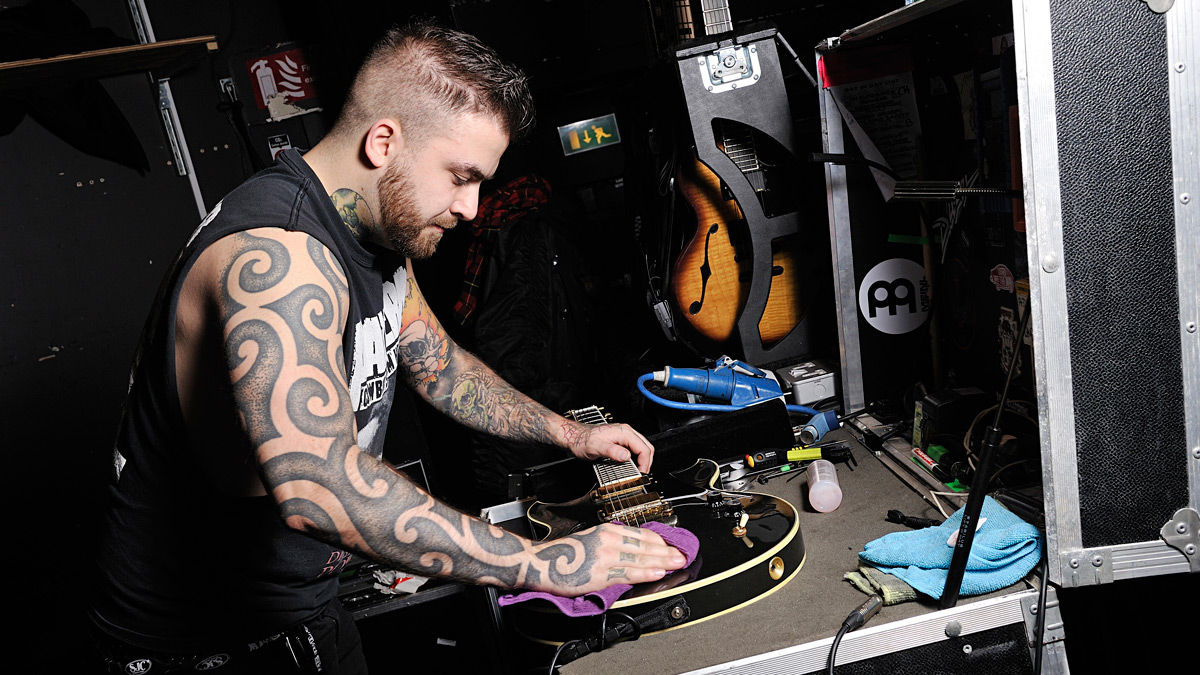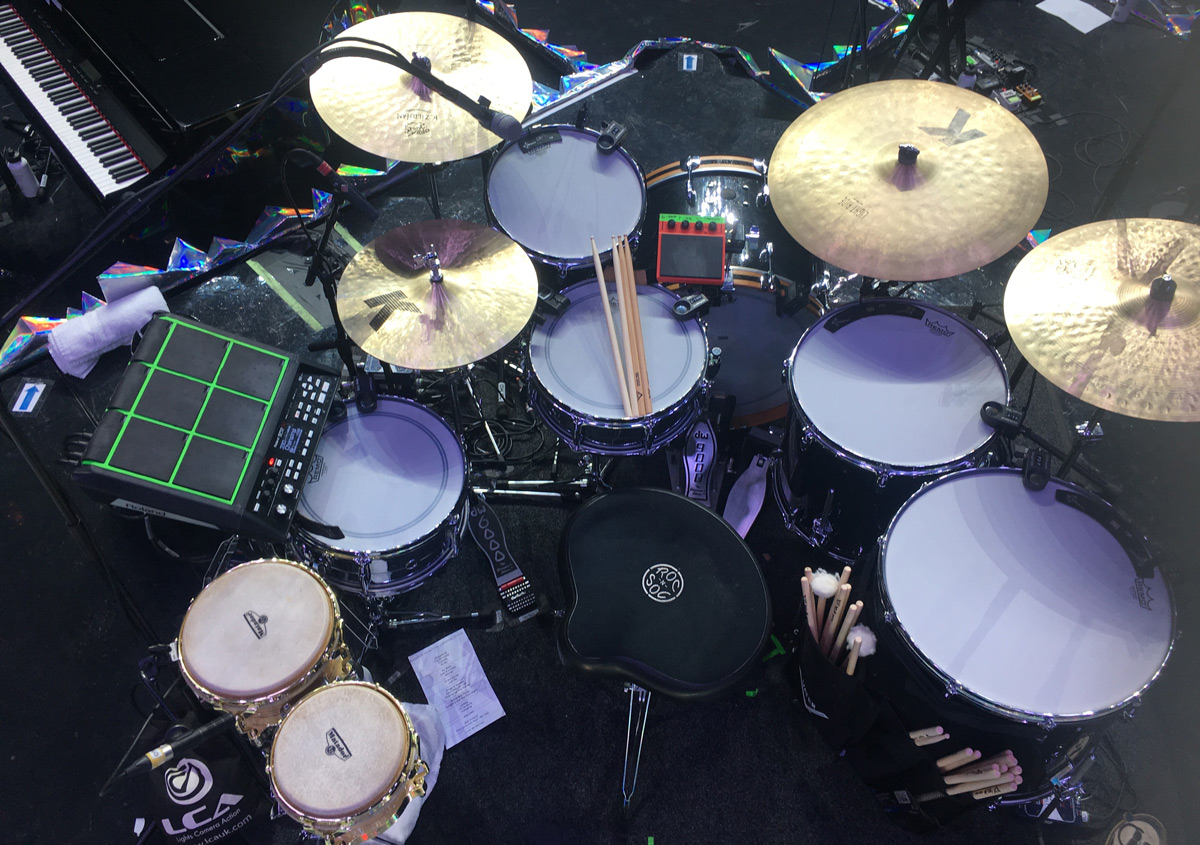How to become a band technician
Get into the industry, work with guitars, drums and keys, and tour the world

Want all the hottest music and gear news, reviews, deals, features and more, direct to your inbox? Sign up here.
You are now subscribed
Your newsletter sign-up was successful
‘Hey mate, just wanted to ask you how you got into teching?’ Is something I'm asked at least once per day. The irritating, but honest answer is, there is no ‘way’ into a touring career. You have to get creative and explore a number of avenues, but you can do things to increase your chances.
I don't claim to have seen, done, or know it all, in fact I have a mountain of lessons yet to learn after only five years in the industry, but I do remember what it felt like. I'd typically start answering by talking about specialisation…
Focus your attention. There is a hell of a lot to learn, and if you spread yourself too thin, you'll never get anywhere
You're going to want to specialise. What are you good at? What can you handle doing, day in, day out for the next 10 years? Do you have a passion for this stuff, or are you just looking to hang out with your favourite musician?
I would introduce myself as a Drum Tech because I felt like I had everything it took to be a drum tech. I would then make sure that they took my number, knowing, that when they scrolled through their phones looking for a Drum Tech, they would see my name and associate it with that role, even if they couldn't actually remember meeting me. Keep it specific - if I had introduced myself as ‘a tech’, or ‘an all-rounder’, chances are they'd skip past me on the specialised roles.
The second, and arguably most important reason to specialise, is focusing your attention. There is a hell of a lot to learn, and if you spread yourself too thin, you'll never get anywhere.
Tear it down, build it up

The internet is a powerful tool; with minimum investment, you can learn almost everything you need from guys who dedicate their YouTube channels to the servicing and modification of instruments. Learn. From. Them.
Get cheap gear if you don't own any, pull it apart, see how it works, how it is constructed. Can you improve it with cotton wool or sandpaper? Yeah? Then do so. Got friends with instruments? Then offer to service their kit, their guitar, whatever your specialist instrument is. Get your hands on it.
Want all the hottest music and gear news, reviews, deals, features and more, direct to your inbox? Sign up here.
I’ve always promised to pay for a professional service of any friends instrument if I do anything to it that makes it play worse. It makes sceptical friends much more comfortable while I'm pulling their pride and joy apart, and it gave me real motivation not to cock it up.
The reality is, if you want to learn to do tech work, the only things you need to get qualified are an instrument, curiosity, and access to YouTube.
The touring circuit is competitive, and the more useful you can be, the more you will be valued
And yet, despite me saying how useful it is to specialise, it is not the only story. On your earlier gigs, people will expect you to chip in across every area. The touring circuit is competitive, and the more useful you can be, the more you will be valued. There is certainly no harm in knowing how to plug in a keyboard, tune a guitar or fold up some hardware, but you can learn this on the job. At home, focus your attention on whatever you want to specialise in. On tour, don’t be too proud.
By far my favourite way to learn things is to shadow other people. Never underestimate the value of experience. Every town has someone who runs a small guitar shop, a drum teacher who offers servicing, or a guy who repairs amps in his attic. It never hurts to know these people.
Pop over and introduce yourself, chances are they will be happy to tell you about the time they sold Eddie Van Halen some new machineheads or whatever, but behind the questionable anecdotes is a wealth of technical experience ready to be traded for a cup of tea and a bit of free labour. It's a great way to get hands on with gear, learn the solutions to common problems, and two years down the line when you're stumped with an issue, you know damn well that old-timer back home will be able to diagnose your problem over the phone.
Lastly I’d say its important to get active on social media. If you look up #guitartech, #drumtech or #playbacktech you’ll see a host of pros sharing stories from the road. Between the snaps of dodgy festival catering and portaloos, you'll find heaps of detailed rig rundowns and explanations from crew of how their rigs have gone together, explaining things like redundancy, noise reduction, cable management, preparation and prevention for the live environment that you may not have had to take into account when servicing gear in your bedroom or cutting your teeth on smaller shows. It never hurts to know how Metallica do things.
Get into the industry

All that said, you still don't have a job. When you're starting out, and don't know anyone in the industry, getting someone to take a chance on you can seem all but impossible, but there are a number of ways you can increase your odds.
The way most of my colleagues have come into the industry is through backline rental companies. If you've put in the groundwork, you don't need any touring experience to work with a company renting gear to bands or festivals.
Places like John Henrys, Music Bank or STS employ an army of techs to prep and service gear for touring acts and are usually on site providing the ‘in-house’ backline at the biggest festivals nationwide. Working for backline companies will put you in direct contact with pro gear, and will get you working face to face with touring techs. Its the best way to get paid, work your way up and to network as a professional.
Any town with a venue larger than 500 capacity will have a local crew company somewhere near by. When bands, theatre productions or just about anything that requires a stage comes to town, local crew are on hand to unload the truck, build the stage and rig the lights. Generally, they'll be there doing all the hard work while the touring crew stand by, drink coffee and complain about their jobs. Crew calls can be anything from four guys to help unload a trailer up to 100 people helping build a gig at Wembley Stadium.
As with the backline rental companies, this gets you in the mix, building shows of all different sizes, working closely with touring crew, and gets you paid while you learn. On show days, there is nothing more valuable than a member of the local crew who is on the ball and willing to help. Be that guy.

So much of this advice becomes more practicable if you live in, or near a major city. It’s no surprise the nearer you are to the shows, the more opportunities for entering the industry there are, but it doesn't mean you cant get work whilst living away from the major markets.
I lived in a rural area outside of a small city when I started touring. My main way of getting work was emailing band managers. Reach out to small touring acts; chances are they wont have room in their van, and you shouldn't underestimate how expensive it is to have another mouth to feed, even before paying wages, but now and then, they might have a space.
I think I averaged one reply a month to my endless emails, and it was almost always some variation of ‘NO.’ That being said, I got my first tour this way. I was filming videos for YouTube, selling merch and helping with backline. It's not the best method, but it did work.
If there is one thing I would like to express, it's this: there are so many ways you can be proactive in your pursuit of a career in the music industry. I found it so frustrating when people would tell me to ‘wait til a mate's band get signed and tag along’. I was never going to place my future in someone else's hands, and don't suggest you do so, either.
In the five years since my first gig as a tech, I've worked with bands across the board, from Killing Joke to Grace Jones, Glass Animals, London Grammar, and The Kooks. Before that I’ve sold merch, made videos, worked bars, box office and local crew - just about anything to get me nearer to a proper gig.
Right now, I’m contradicting all my advice, looking after MIDI/keys, drums and guitar as ‘Stage Right’ tech for Paloma Faith. You can follow my exploits through Instagram @cam_drumtech, tell me why my advice is terrible or ignore it completely and ask me how I got into the industry…